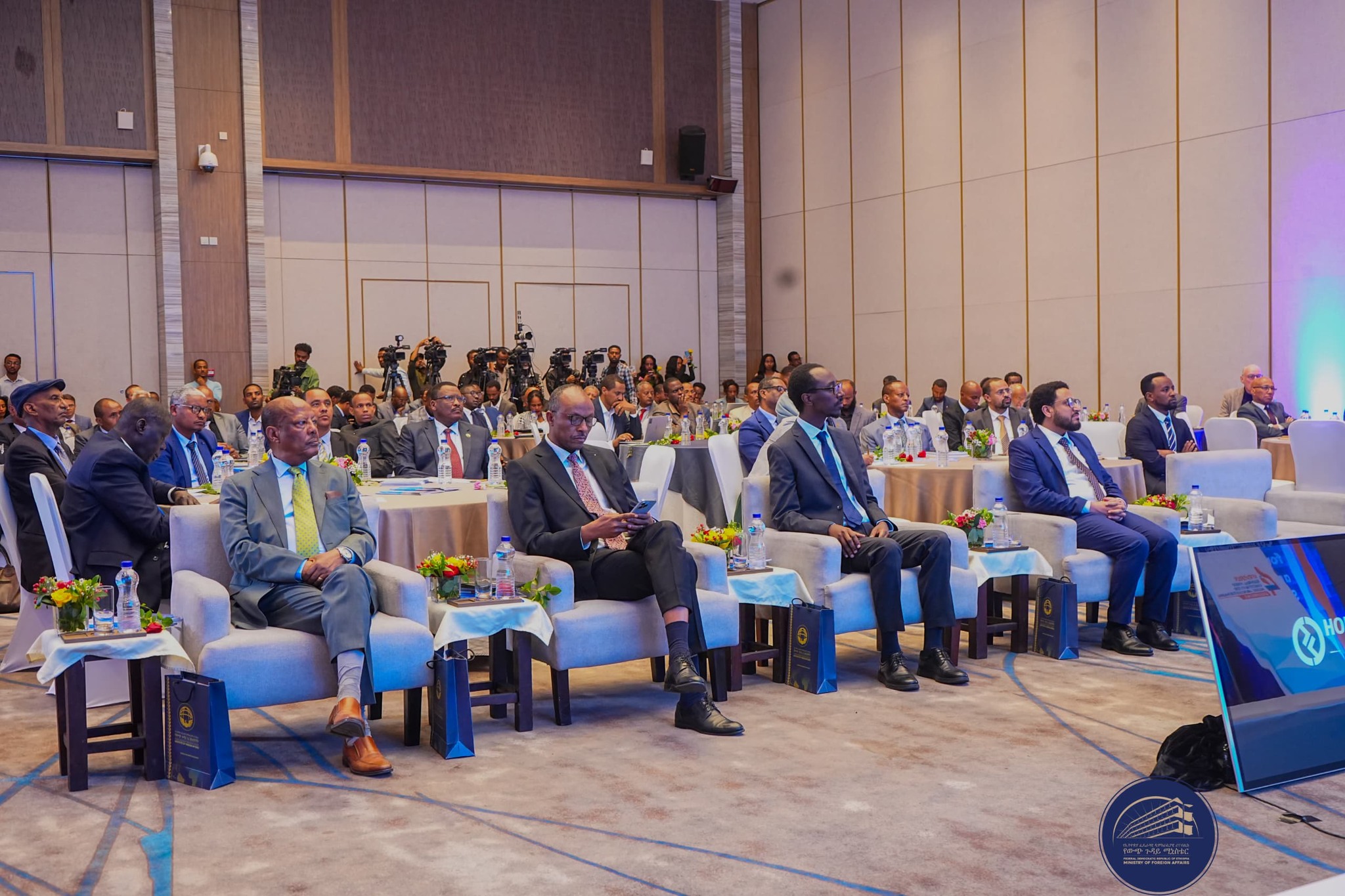FM Underscores Urgent Need to Bridge Energy Divide in East Africa - ENA English
FM Underscores Urgent Need to Bridge Energy Divide in East Africa

Addis Ababa, June 17, 2025 (ENA) -- Hundreds of millions of Africans still lack electricity, particularly in East Africa, where coordinated action is urgently needed to bridge the energy divide, Foreign Affairs Minister Gedion Timothewos stressed.
Speaking at the fourth annual forum for regional integration and reasonable utilization of the Nile (AFRIRUN IV) today, the minister said the conference is a crucial step toward enhancing regional cooperation, ensuring equitable energy access, and unlocking the region's full potential
Noting the need for clean and renewable power that reaches all communities, the FM called for shared infrastructure, harmonized policies, and cross-border energy trade to meet the goals of the UN Agenda 2030 and the AU Agenda 2063.
Ethiopia is committed to being a reliable source of clean energy, he further stated, citing ongoing electricity exports to Djibouti, Sudan, and Kenya, with plans to expand connections to Tanzania, Somalia, and South Sudan.
“Ethiopia is proud to contribute meaningfully to this shared vision. Our investment in renewable energy, particularly hydropower, has positioned us a country that is an emerging hub,” he added.
Gedion pointed out that the cross border transmission lines being built are more than just infrastructure projects.
They are catalysts for deeper integration, tangible symbols of the shared destiny, and collective prosperity.
On his part, Water and Energy Minister Habtamu Itefa acknowledged Africa’s rich renewable energy resources, pointing out the stark reality of energy poverty.
He stressed the need for enhanced collaboration to address power deficits in neighboring countries.
“Coming to Ethiopia, we do have 60 million Mega Watt power generation capacity or potential. We have developed so far close to 10 percent. If we see our neighbors Somalia, Kenya, Sudan, and NBI countries except Egypt, the deficit is big. That means we have to join hand in hand to address the issue that we are demanding,” the water minister elaborated.
Nile Basin Initiative (NBI) Advisor, Mickael Wizza, said the Nile Basin is endowed with abundant renewable energy resources; and it is imperative that the resources are harnessed collectively.
The advisor stressed the need for collaboration to enhance energy access for millions who currently live without reliable power, thereby driving economic development, job creation, and improved quality of life throughout the region.
According to him, the region can transform challenges into opportunities together and ensure that energy systems are equitable, sustainable, and capable of supporting the aspirations of the people for generations to come.
Wizza further expressed NBI’s commitment to supporting efforts of regional integration.
Institute of Foreign Affairs Executive Director Jafar Bedru said renewable infrastructure, including large hydropower dams, geothermal plants, and solar fields, offers tremendous potential for regional cooperation and shared prosperity.
In this regard, the Grand Ethiopian Renaissance Dam (GERD) is a transformative project that not only boosts Ethiopia’s energy security but also lays the groundwork for a cooperative regional power system.